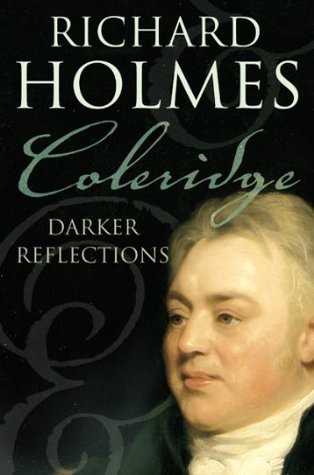Kindle Notes & Highlights
went on constantly, by day and night, and several were
and a half feet long by twenty inches wide. It was fine for sitting, eating, drinking, writing, even
intensely lonely. Throughout February and March, his
or space. Wordsworth was determined to be self-sufficient,
after. Indeed, perhaps because of their very physical proximity, Coleridge could never speak openly to
ever since
to externals, the betrayed habit of brooding over the world within him, and the prodigality of
with him, and the old, teasing relations crept back
momentarily airborne. A poet is himself like the humble
15 Coleridge had now shown that the
little but technical interest. He never later acknowledged
magical formulations. “If a man could pass
in a Dream, & have a Flower presented to
Might call it the great dumbing down...... With our chief Dick loose in the world, I guess we better get used to the style: May be catching... Insult not just the party he took over to get the nom. But every leader who had some morals left, played by fair rules, with more cultural and intellectional
is suddenly
Yet The Statesman’s
of expression” on matters of “party politics and polemical
and Mary had repeatedly read the “Christabel”
combined, is part of what Coleridge came to represent.
Coleridge’s pervasive presence now filtered, like some wondrous philosophic protoplasm, into the third of Peacock’s satirical novels, Nightmare Abbey (1818). He bubbles into life as Mr Ferdinando Flosky, the interminable and inimitable transcendental talker. It was certainly fame to be given such a position among contemporary figures and fashionables. Mr Flosky holds centre stage with the misanthropic
Cypress (Lord Byron), with the revolutionary idealist Scythrop Glowry (Shelley), with the modish novel-reader Mr Listless, and the full-lipped, hazel-eyed romantic heroine Marionetta Celestina O’Carroll. Peacock caricatured the Highgate Coleridge with a curiously affectionate mixture of respect and ridicule. He mocked, but he celebrated Flosky’s genius. For Flosky, eighteenth-century rationalism had been proved abortive.190 “Mystery is the very key-stone of all that is beautiful in poetry, all that is sacred in faith, and all that is recondite in transcendental psychology. I am writing a
...more
This highlight has been truncated due to consecutive passage length restrictions.
pen in one hand, and a muffiner in the other, with which he occasionally sprinkled salt on the wick to make it burn blue. He sat with ‘his eyes in a fine frenzy rolling’, and turned his inspired gaze on Marionetta as if she had been the ghastly ladie of a magical vision; then placed his hand before his eyes, with an appearance of manifest pain – shook his head – withdrew his hand – rubbed his eyes, like a waking man – and said, in a tone of ruefulness most jeremitaylorically pathetic, ‘To what am I to attribute this very unexpected pleasure, my dear Miss O’Carroll?’” Flosky answers all
...more
This highlight has been truncated due to consecutive passage length restrictions.
“if any person living could make report of having obtained any information on any subject from Ferdinando Flosky, my transcendental reputation would be ruined forever.” The divine Marionetta retires in disarray, ...
This highlight has been truncated due to consecutive passage length restrictions.
desirable object?”19 The great aim of philosophy, he repeated, was the largeness and generosity of mind that came from self-knowledge. To what particular faith it might bring a man, was not the question. It was the rejection of the “little unthinking contemptible self” that mattered, the independent awareness of a greater life. “To have genius is to live in the universal.”20 Coleridge took his bow on a smiling, gentle, English note. Let his listeners go away and read the author who brought philosophy and poetry into “delightful harmony” and reconciled “all the powers of our nature” – William
...more
with
snuffy nose, a pair of strange, brown, timid,
the new language
further employment, 48–9, 66; and STC’s return to England, 48, 60, 75; pre-Trafalgar despatch from Nelson,
from, 421


